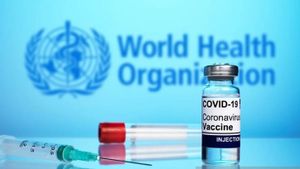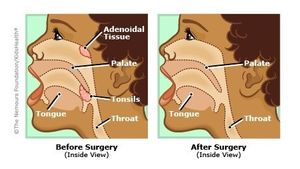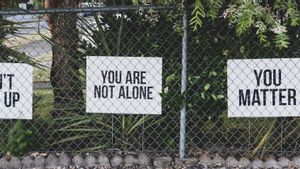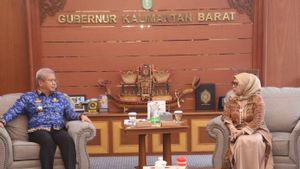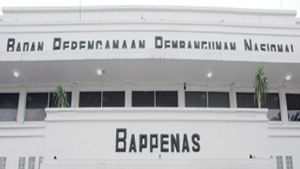
JAKARTA Breastfeeding should be a happy moment for mother and child. Breastfeeding is a magical journey for approximately two years.
But in reality, breastfeeding is not always easy. Mothers often experience various obstacles, especially those who are breastfeeding for the first time. Starting from breast milk (ASI) that does not come out immediately after giving birth, experiencing baby blues, to experiencing people's breastfeeding mothers.
Bullying or bullying of breastfeeding mothers can happen to anyone and anytime. And, this was experienced by influencer Denise Chariesta after she uploaded her baby's breastfeeding content on her YouTube channel on November 14.
Denise Chariesta was raided by bad-end comments because in the video her upload shows her breasts without censorship when giving breast milk to her child. This is a problem for netizens, even though Denise actually seems to cover her breasts as soon as she realizes that her body parts are visible.
YouTube itself has announced changes to guidelines for specific adult content for breastfeeding content.
The breastfeeding content where there is a child, even with the visible isola part, can now get advertising income. Previously, content like this could only be cashed if no isola was visible, "said the YouTube channel.
What Denise Chariesta has experienced may also be experienced by many other mothers in Indonesia, although not in the form of video uploads on social media. Breastfeeding in public places is still considered taboo for some people. Even though the benefits of breastfeeding are being intensively encouraged in Indonesia in recent years.
Breastfeeding in public places is often considered as an activity that does not violate norms, although nowadays there are a lot of breastfeeding activists who encourage mothers to continue to give children's rights, namely breastfeeding, wherever they are.
The chairman of the Indonesian Breastfeeding Mother Association, Nia Umar, admitted that she was concerned that the breastfeeding content of influencer Denise Chariesta was actually used as a target for netizens. Nia said that there are still many Indonesians who consider breast solely an object of sexuality.
"Certainly, the body organs of the breast are the main goal of providing intake for the baby. In humans, breasts have other meanings, different from other mammals. Breast organs have various meanings," said Nia.
As a breast milk activist, Nia herself admits that she often gets questions when giving presentations about the breast milk campaign. However, Nia tries not to be provoked by the questions that lead to these questions.
In line with Nia, Rahmat Hidayat as the co-founder of Indonesian AyahASI, a social initiative to increase the involvement of her husband in supporting her wife in the breastfeeding process, said that there are still many people who do not provide optimal support to breastfeeding mothers.
"Unfortunately, since childhood, most men only know breasts for sexual functions, when exposed to breastfeeding, their point of view is still sexual, so the comments are, yes, very sexist," said Rahmat.
"All of us work to provide an understanding that breastfeeding is as simple as feeding children," said Rahmat again.
관련 항목:
Uploading photos or breastfeeding videos that get negative comments is not only experienced by Denise. The model and wife of the famous singer John Legend, Chrissy Teigen, also often gets cynical comments when sharing her breastfeeding photos on social media.
Another foreign artist who also enjoys uploading breastfeeding photos is Liv Tyler, as well as a Canadian singer, Alanis Morissette shared a memorable photo on Instagram with the hashtag Thomas back Thursday.
According to the World Health Organization (WHO) breastfeeding is one of the most effective ways to ensure the health and survival of children. WHO also calls breast milk an ideal food for babies. Breast milk is safe, clean, and contains antibodies that help protect against many common diseases in childhood.
WHO and UNICEF recommend early breastfeeding (IMD) in the first hour after the baby is born. Exclusive breastfeeding is continued in the first six months, meaning no food or other fluids for the baby, including water.
Breastfeeding is continued for babies over six months, according to the baby's request, and added breast milk complement food. WHO also said that breast milk should be continued until the child is two years old or older.
Breast milk not only provides so many benefits for children, but also breastfeeding mothers. One of the benefits of breast milk for children is preventing overweight or obesity.
"Children who are breastfed perform better in intelligence tests, less likely to become obese, and less likely to catch diabetes in the future," the WHO's official website said.
The breastfeeding woman also has a reduced risk of breast cancer and ovaries, he said.
In Indonesia itself, the fulfillment of baby rights is regulated in Law Number 36 of 2009 concerning Health. Article 128 states that every baby has the right to Exclusive Mother's Water. The family, government, local government, and the community must fully support the baby's mother by providing special time and facilities.
Breastfeeding should be a beautiful moment, a sacred moment where a mother gives her best to her child. Though breastfeeding has a myriad of benefits, it is always seen as negative by people whose minds are heretical.
The English, Chinese, Japanese, Arabic, and French versions are automatically generated by the AI. So there may still be inaccuracies in translating, please always see Indonesian as our main language. (system supported by DigitalSiber.id)



